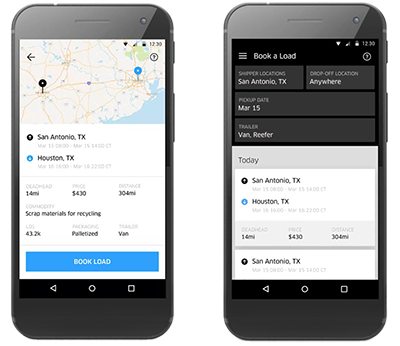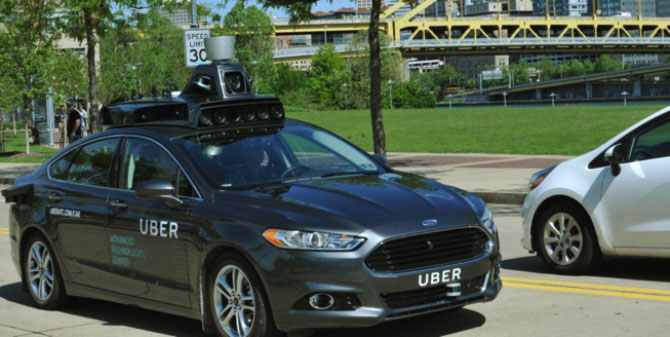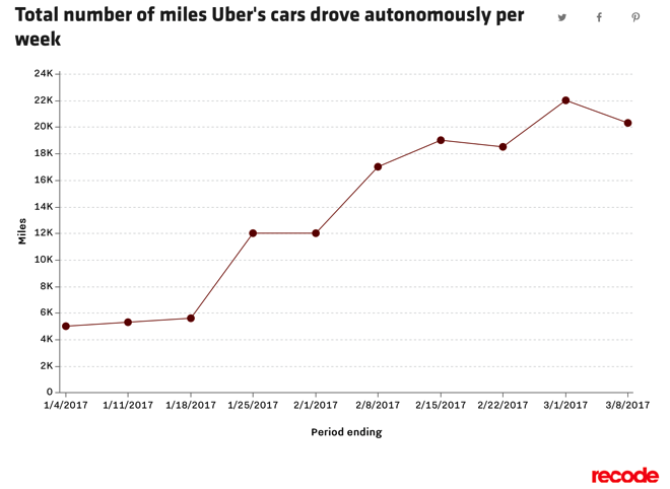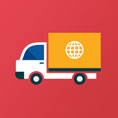Could Uber Freight become the future of logistics?
“Tap a button, book a load”.
The slogan is catchy, articulates quickness, and is appealing – especially for drivers and shippers who strive for better efficiency. However, what does Uber’s push toward autonomy really mean for logistics and hardworking Canadians?
Let’s explore.
Uber Freight
Uber Freight markets itself as a “free app that matches carriers with shippers”. With just a tap of a button, Uber Freight claims to instantly book the loads you want to haul, with upfront pricing and quick payments as a bonus.
With Uber Freight, drivers can pick the loads they want, without back and forth negotiations, by selecting available listings, which include:
- Deadhead
- Price
- Distance
- Commodity information,
- LBS
- Packaging information
- Type of trailer required
Then, once a driver decides on a load, they simply press a button to confirm their shipment and receive instant booking information.

Uber Freight
It seems perfect. Simple. Ideal.
But in the logistics industry, there’s more to it than that.
What Uber Freight Means For Logistics
There’s no denying that mobile applications are making life easier for individuals around the world, and Uber Freight has simplified a process that once took several hours and multiple phone calls to arrange. However, there’s something to be said about logistics solutions being too quick and too easy:
- Do details get lost?
- Do special requirements get neglected?
- Are packages more vulnerable to theft and misplacement?
- What happens if the technology fails?
- What if a shipment is double booked by drivers?
- Will people lose their jobs?
By removing the personal and eliminating real-life negotiation and interaction, the logistics industry may become completely autonomous and therefore controlled by vulnerable systems and not by skilled and experienced people – and conversation seems headed in that direction.
The Risk of Autonomous Shipping
The risks involved in removing humans from shipping and packaging is complex, as eliminating discussion between shipper and driver opens the door for self-driving Uber Freight trucks to enter the conversation as well. In fact, Uber has already put self-driving cars on the road.
The Uber ATC car, originally tested in Pittsburgh, was built with sensors, radars, laser scanners, and a camera to map out the surrounding environment in which it drives. As of August 2017, Uber brought the technology to Toronto, putting two autonomous cars on the streets after winning approval from the province of Ontario to perform on-road testing.
The Toronto Star reported that Uber announced in May of 2017 that the company would be opening a research group devoted entirely to driverless technology advancement in Toronto.

Uber Freight

https://www.recode.net/2017/3/24/14737438/uber-self-driving-turmoil-otto-travis-kalanick-civil-war
As the first province in Canada to allow on-road testing of autonomous vehicles, it would then seem that Ontario is likely to see further research into Uber Freight driverless technology.
What are the risks associated with Uber Freight?
1. Limited Communication
What happens if something goes wrong during a driver’s delivery? Is Uber responsible? Is the driver? By eliminating conversation between shipper and driver, the driver is left largely in the dark as no relationship has been established alongside the service.
In Uber Freight’s FAQ section of their website, they invite any driver with a problem to get in touch with them by email. However, truck drivers spend most of their time on the road, without time to waste, nor Wi-Fi. This makes emailing a hassle and promises no immediate response to real-time concerns.
2. Accessorial Costs
Accessorial charges are charges made for those performing freight services beyond regular pick up and delivery. This includes waiting time, fuel, and other charges.
In the fine print of Uber Freight’s conditions, the company states that they can only guarantee accessorial rates if their mobile app was running throughout the load. This is concerning as phones lose signal, die, fail, break, or malfunction, leaving the driver at risk.
Uber Freight also states that the rates are subject to change at Uber Freight’s discretion and that detention payment starts two hours after appointment time and is capped at four hours of paid detention – with deadhead miles paid up to 125 miles. This information is concerning as drivers can face unexpected changes in rates without realizing it.
| Accessorial | Carrier Payment |
| Detention | $75 per hour |
| Layover | $300 per day |
| Truck Order Not Used | $200 + $2 per mile deadhead |
| Driver Assist | $75 per load |
3. Quality Control
At McKenna Logistics, we’ve experimented with our handling processes over the years – as technologies have advanced and demands have changed. Determined to provide our customers with the best logistics solutions, we’ve worked hard to leverage various technologies to reduce room for error, to deliver the best customer service, and to ensure we’re working as productively as possible.
However, what we’ve learned from these investigations is that when technology begins to completely trump the sight, experience, and intuition of a real-life person, oversight and error is more likely to occur.
Where technology fails is that it is not human. It does not feel. It does not have a passion for its work. It does not consider factors beyond what it has been programmed to know. Technology acts without consequence, can fail without warning, and therefore needs to be monitored – especially when it comes to logistics and driving.
As shipping and logistics move into autonomy, the country will need to consider where a line must be drawn. At what point do we limit the technology that is taking away the jobs of hardworking Canadians who have spent years becoming experts in their industries?
Technology is not ‘bad’, but regulation will need to be standardized to protect the careers and systems that rely on real-life people to succeed and function with passion, emotion, conscience, and ethics.
How will Uber Respond to Those Concerns?
Uber Freight Improvements & Future Plans
Uber Freight has admitted their faults and acknowledged that the app has a long way to go.
While speaking to Alexis C. Madrigal of The Atlantic, Uber Freight’s product lead Eric Berdini explained that in the beginning, drivers had to search for what they wanted in the app. Now, the process is more streamlined and better geo-located to improve efficiency and the experience – a positive improvement.
“We’re sending out push notifications. Hey, this load is one you’ve taken before. It just showed up on our system. Do you wanna book it? And then when they get into an app, there is a whole For You section. It’ll say: Recommended Because The Load Will Take You Home. Recommended Because You’ve Done This Load Before.” – Eric Berdini
When asked about the public concern of automation, Berdini explained that Uber isn’t as close to automation as it may seem:
“We really made it seem like this thing was coming sooner than it is. We probably scared a lot of people. We kind of hyped this thing up.”
Berdini went on to explain that the future Uber Freight sees is one where jobs do not get impacted in the way people expect them to:
“We wouldn’t be doing Uber Freight, which is a human-driven product, if we didn’t think that there was a responsible way for the future to look with humans and self-driving trucks.”
Time will tell.
Freight Delivery In Canada
While Uber Freight has yet to come to Canada, similar companies have been attempting to make a name for themselves in the world of monitoring and transferring goods.
Joey Co. for example, is a Toronto delivery service that will pick up and deliver your dry cleaning, groceries, and shopping items. And while Joey Co. is predominately a consumer-customer driven company, there is room for companies like Joey Co. to expand and to become a commercial-customer business, offering potential for companies like McKenna to jump on board and to provide e-commerce customers with fast delivery in Toronto.
Flexe, another interesting delivery company to look out for, provides next day delivery by matching short-term capacity with short-term need for warehousing. Interested in the efficiencies of Flexe, we at McKenna have begun working with Flexe to strategize and manage our growth, inventory peaks, and returns – pushing to strengthen our business even further.
An Update: A Pending Legal Battle for Uber Freight
Since acquiring a self-driving trucking start-up Otto for $650 million in 2016, Uber has been working hard to carve out a place for self-driving freight. However, this hasn’t come without conflict and a hefty legal battle with Waymo, the self-driving car sector of Google parent Alphabet.
Waymo has claimed that Anthony Levandowsky, a former Google engineer and the current VP at Uber had stolen confidential documents that led to the advancement of Uber’s self-driving mission. The trial for this lawsuit is set to play out in December 2017.
At McKenna, we’ll be following this story to learn more about the impacts of this case and how Uber Freight plans to move forward.
Contact McKenna
For any questions about the future of logistics or McKenna’s developing fulfillment strategies and technologies, contact us today or call us at 1-800-561-4997.





